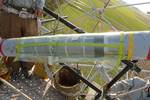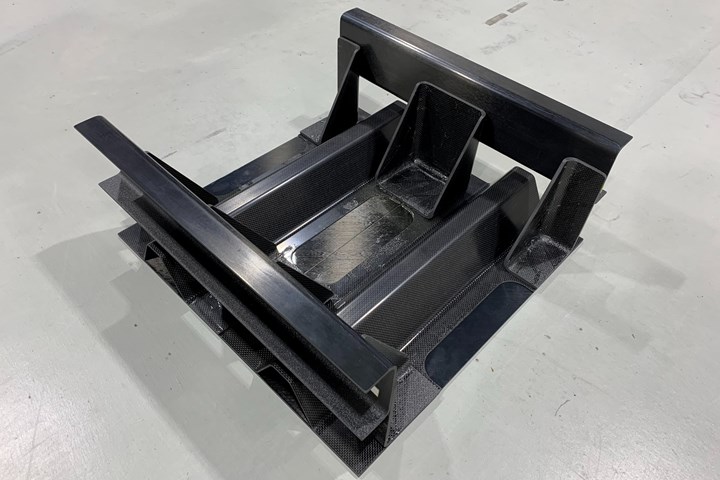Toray develops high-speed thermal welding for thermoset composites
Novel technology forms a thermally weldable layer on the surface of carbon fiber-reinforced thermoset or thermoplastic components, further validated by demonstrators.
Toray Industries Inc. (Tokyo, Japan) has developed a technology that thermally welds carbon fiber-reinforced thermoset parts at high speed. According to Toray, this technology will enable high-rate production and weight savings of carbon fiber-reinforced polymer (CFRP) airframes. The company is developing demonstrations, with a goal of commercializing airframes after 2030 while also further expanding applications.
Toray’s simple bonding approach forms a thermally weldable layer on the surface of carbon fiber-reinforced thermoset or thermoplastic components, instantaneously heating part surfaces to bond them, without the need for adhesive bonding and bolt fastening.
The company assembled a demonstrator simulating the elemental structure of an aircraft at high-speed using thermally weldable CFRP thermoset parts, determining that the mechanical properties and joint strength is equivalent to that of co-cured CFRP structures for current aircraft models. Toray believes its technology will achieve a high-rate production that matches or surpasses that for aluminum alloy airframes, in addition to reduced CO2 emissions across the CFRP airframe’s life cycle, and cutting weight.
Some of Toray’s progress through this development effort is based on results obtained from a project, “Development of New Innovative Composite Materials and Forming Technologies,” supported by the New Energy and Industrial Technology Development Organization (NEDO).
Toray adds that it has partnered with Boeing (Arlington, Va., U.S.) to promote a number of technological development projects in the fields of aircraft manufacturing and materials technology.
For content related to welding, be sure to read:
- “Thermoplastic composites welding advances for more sustainable airframes”
- “Thermoplastic composites welding: Process control, certification, crack arresters and surface prep”
Related Content
-
Natural fiber composites: Growing to fit sustainability needs
Led by global and industry-wide sustainability goals, commercial interest in flax and hemp fiber-reinforced composites grows into higher-performance, higher-volume applications.
-
Combining multifunctional thermoplastic composites, additive manufacturing for next-gen airframe structures
The DOMMINIO project combines AFP with 3D printed gyroid cores, embedded SHM sensors and smart materials for induction-driven disassembly of parts at end of life.
-
Plant tour: Teijin Carbon America Inc., Greenwood, S.C., U.S.
In 2018, Teijin broke ground on a facility that is reportedly the largest capacity carbon fiber line currently in existence. The line has been fully functional for nearly two years and has plenty of room for expansion.

















